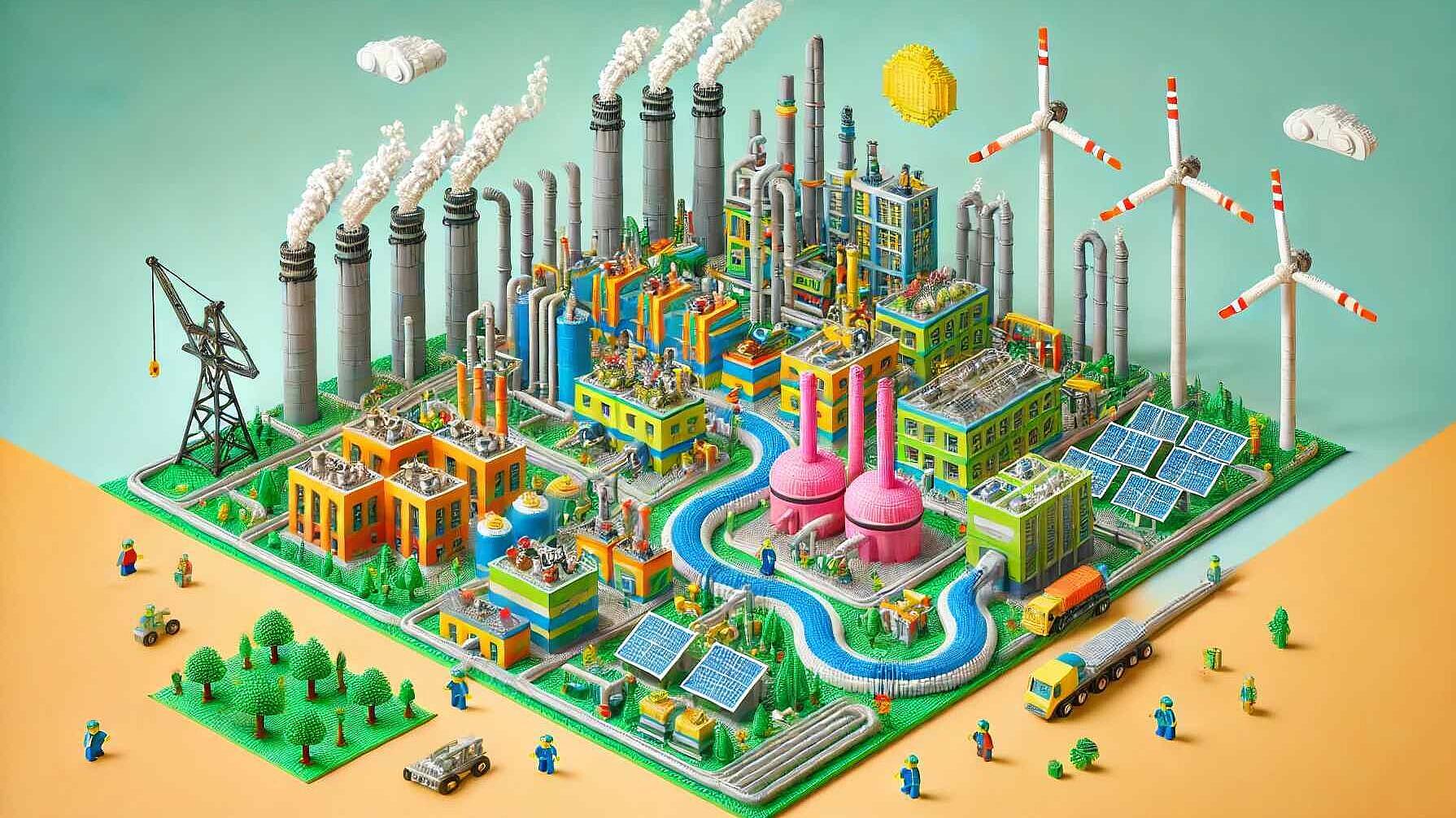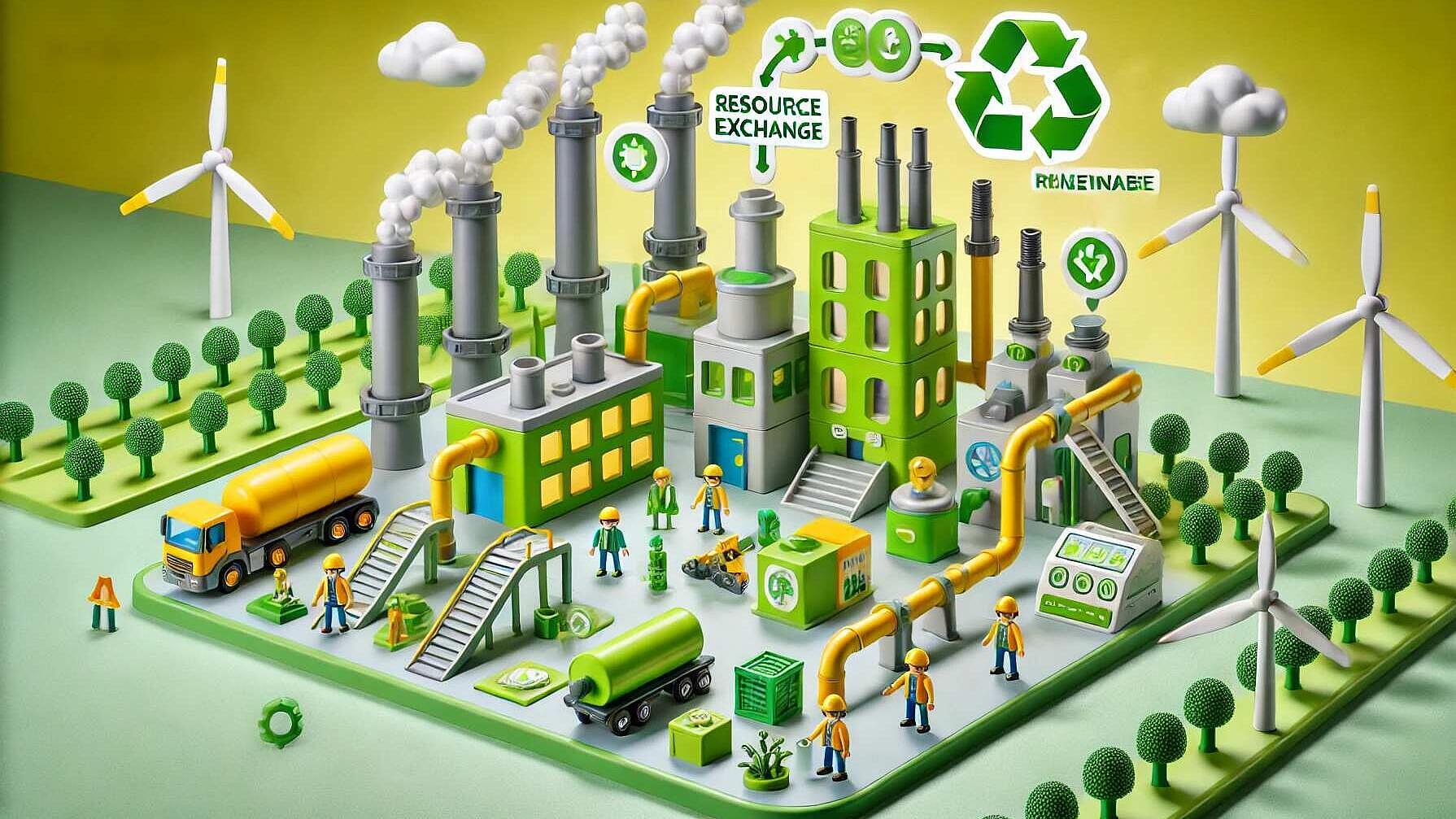 Circular Economy
Circular EconomyIndustrial Symbiosis: A Pathway to Sustainable Industry through CORALIS
Summary
The CORALIS project, supported by the EU Horizon 2020 program, investigates industrial symbiosis (IS) as a means to decarbonize resource-intensive industries through innovative collaborations. It involves three Lighthouse demonstrator sites in Spain, Sweden, and Italy, and three Follower sites in Austria, Spain, and Turkey. These sites exemplify best practices in IS, including a Spanish site reconfiguring fertilizer production with local waste, a Swedish site using residual heat from a paper mill for greenhouse farming, and an Italian site transforming metal residues into secondary raw materials.
The project underlines the importance of managerial frameworks, dedicated facilitators, local authority support, streamlined permits, and public-private partnerships in fostering IS. Findings highlight IS's role in reducing environmental impact and offering economic benefits like cost savings, efficiency, and new business opportunities. Trust and transparent communication among stakeholders are identified as key to successful IS initiatives.
CORALIS positions IS as critical for aligning with sustainability goals and stresses the importance of staying informed on IS technologies, participating in training, engaging in IS projects, and considering careers in IS facilitation or environmental policy-making. The European Green Deal emphasizes the need for industry transformation, with IS as a vital step. The paper serves as a call to action for industries and young professionals to adopt IS for a sustainable future.
Open full article
Industrial Symbiosis: A Pathway to Sustainable Industry through CORALIS
The following article is a summary of the report “Inventory of best practices from the CORALIS demonstrators” delivered by the EU project CORALIS. And it is also a training article for the Enerwhizz, which is a fast-paced quiz on energy transition, greentec and renewables. Answer 5 YES-No questions in 45 seconds to earn cash coins and win prices delivered to your office or home. No registration, just play!
Check: https://enerwhizz.app/
The Current Landscape of Industrial Symbiosis
Industries worldwide are under increasing pressure to reduce carbon emissions and improve resource efficiency. As a response, industrial symbiosis (IS) has emerged as a transformative approach where different industries collaborate to optimize resource use, turning waste from one sector into valuable input for another. The CORALIS project, funded under the European Union’s Horizon 2020 program, is at the forefront of demonstrating best practices in IS. The project aims to facilitate the decarbonization of resource-intensive industries by fostering innovative collaborations that enhance sustainability and economic efficiency.
CORALIS has implemented and studied IS initiatives at three ‘Lighthouse’ demonstrator sites in Spain, Sweden, and Italy, with additional insights from three ‘Follower’ sites in Austria, Spain, and Turkey. These sites provide a wealth of knowledge on managerial procedures, business model development, and the critical role of trust in IS initiatives.
Innovations and Opportunities in Industrial Symbiosis
The CORALIS project showcases several innovative strategies in IS. Each Lighthouse site has taken a unique approach to integrating IS into their operations:
- Escombreras Valley, Spain: Focused on reconfiguring fertilizer production by replacing imported raw materials with locally available CO2 and residual streams. The project also explores a novel potassium nitrate (KNO3) process, reducing water consumption and emissions.
- Frövi, Sweden: Demonstrates the use of residual heat from a paper mill to sustain a 10-hectare greenhouse for tomato production. This initiative illustrates how IS can extend beyond industrial networks to benefit the local food supply chain.
- Brescia, Italy: Aims to transform industrial metal residues into secondary raw materials, reducing waste and creating a circular economy within the metal and foundry sector.
A critical component of these projects is the managerial framework that enables IS development. CORALIS highlights the importance of having a dedicated facilitator to coordinate activities, maintain open communication, and align diverse industry goals. Additionally, local authorities play a vital role in supporting IS by streamlining permit processes and fostering public-private partnerships.
The Impact on the Future of Industry and Society
The findings from CORALIS suggest that industrial symbiosis can be a game-changer for industries looking to align with sustainability goals. Beyond reducing environmental footprints, IS initiatives offer economic benefits such as cost reductions, improved efficiency, and the creation of new business opportunities. Moreover, IS fosters resilience by decreasing dependency on raw material imports and mitigating supply chain disruptions.
One of the most significant takeaways from CORALIS is the importance of trust among stakeholders. Since IS requires collaboration across different sectors, establishing trust and transparent communication is crucial. CORALIS demonstrates that developing clear agreements, sharing risks and rewards equitably, and maintaining open dialogue are fundamental to the success of IS initiatives.
For young professionals and students entering the workforce, IS presents an exciting field with growing opportunities. Careers in industrial ecology, sustainability consulting, and IS facilitation are emerging as industries recognize the need for specialized expertise in managing these complex collaborations.
Building the Future of Industrial Symbiosis
The CORALIS project provides a blueprint for industries and policymakers looking to implement IS strategies. To accelerate the adoption of IS, students and professionals should:
- Stay informed about emerging IS technologies and business models.
- Participate in IS-focused training programs or academic courses.
- Engage with companies and policymakers working on IS projects.
- Consider careers in IS facilitation, sustainability consulting, or environmental policy-making.
The European Green Deal and other international sustainability initiatives highlight the urgency of systemic transformation in industries. Industrial symbiosis is a tangible step toward this transition, demonstrating that through collaboration, industries can achieve both economic growth and environmental responsibility.
Conclusion
The CORALIS project underscores the vast potential of industrial symbiosis as a sustainable industry model. By leveraging cross-sectoral collaborations, IS can drive efficiency, innovation, and long-term sustainability. The lessons learned from CORALIS serve as a guiding framework for industries worldwide, emphasizing the need for proactive management, trust-building, and adaptive business models.
For industries and young professionals alike, now is the time to embrace industrial symbiosis. As industries evolve, IS will not just be an option—it will be a necessity for a sustainable future.
If you read the full article, you are perfectly equipped to play and win. And to have fun with friends leagues, leaderboards, missions and whizzers. And likely in your language as we are supporting 12 languages.
And if you found nuggets you want to have a deeper look at – check the source document, the report “Inventory of best practices from the CORALIS demonstrators” delivered by the EU project CORALIS.



